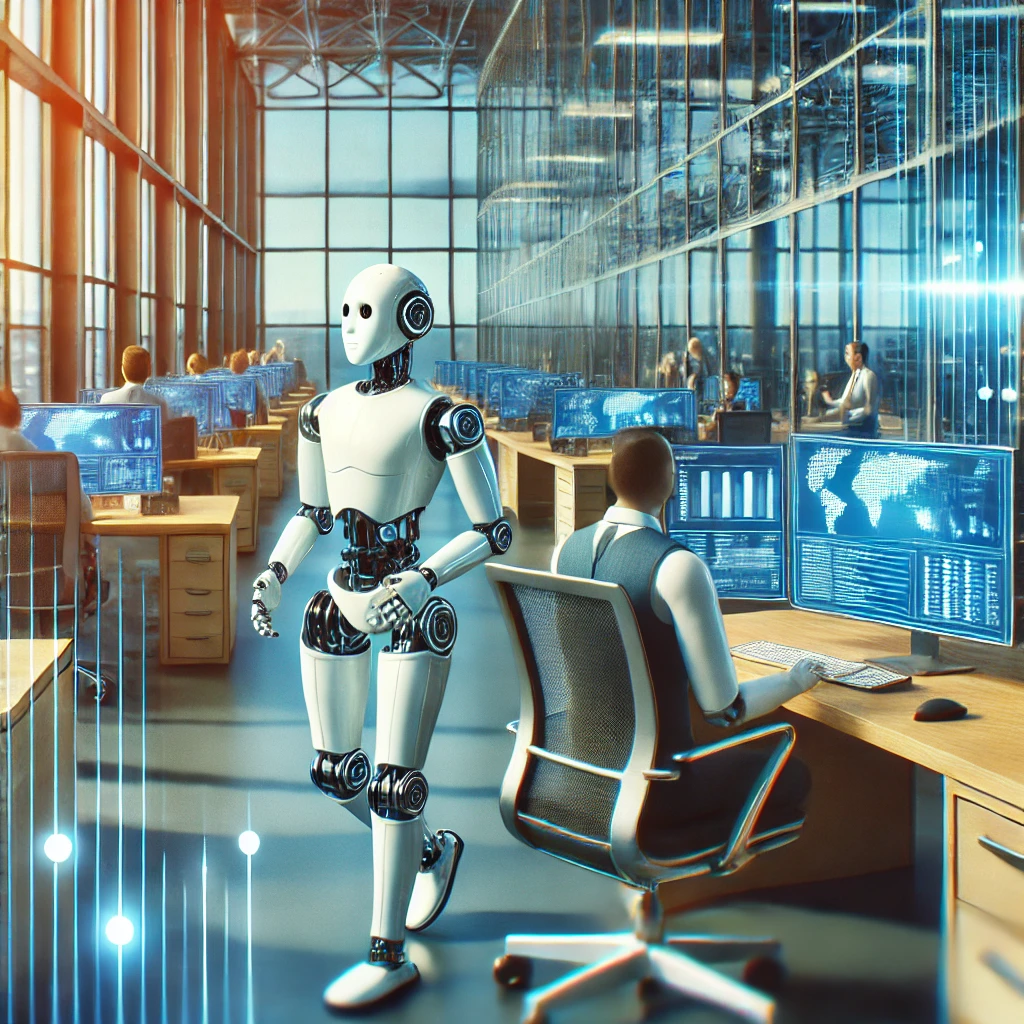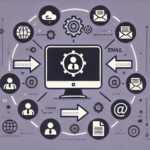During times of economic uncertainty, employees are often asked to shoulder heavier burdens with less support. According to UiPath’s 2023 Automation Generation Report, more than one in four employees globally are juggling a greater workload due to staff reductions or hiring freezes. This relentless demand to do more with less stretches their capacity to the limit and frays the delicate balance between work and personal life.
Mental Health UK’s Burnout Report 2024 paints a concerning picture, branding the UK as a “burnt-out nation”. Over a third of the workforce feels crushed under extreme workplace pressures, and one in five has been forced to step away from work to recuperate. The key issues causing work stress and gnawing away at job satisfaction were identified as: inefficient processes, poor working relationships, and communication issues between employees and managers.
How can employers tackle these challenges?
One promising pathway is through technology – specifically automation and AI tools that lighten workloads and alleviate pressure, allowing more room for work that’s rewarding.
UiPath has identified a group of professionals, called the Automation Generation, who are embracing technology to enhance collaboration, creativity and productivity. According to this research, 58% of respondents believe that AI technology can help address burnout and improve job satisfaction.
Another interesting finding is that 57% of respondents think more highly of employers who use AI-powered automation to support their teams and modernise their operations. This highlights the extent to which people appreciate companies that invest in tech to make work life easier and less stressful. Technology is more than an efficiency tool. It’s also a magnet for talented and motivated staff.
Let’s explore how modern automation and AI technologies can nurture your employees so they, in turn, nurture your business.
Reduce stress with workflow automation
Workflow automation simplifies how business processes are completed by setting up a sequence of tasks that are triggered based on specific rules or actions. In the finance department, for instance, when someone submits an expense report, the system automatically alerts a manager to review the report and, once approved, routes it to the finance team to process payment. This workflow can be tailored with conditions, such as requiring additional approvals for higher amounts.
This approach helps to reduce stress in a number of ways. It eliminates the need to manually send documents and chase down approvals, ensures tasks are completed correctly and on time, and saves managers from having to check every detail themselves. And employees can see the status of tasks as they happen, which clears up any confusion and improves how departments work together.
According to a 2023 Harvard Business Review survey, 94% of staff say digital workflows are crucial for their organisations. They report numerous benefits, including enhanced efficiency, smoother operations, improved access to tools and technologies, and better collaboration.
Get everyone on the same page with process mapping
This technology uses data from event logs in company systems to automatically create a visual representation of a process – saving teams from having to painstakingly document these steps themselves. With a clear map of the workflow as it actually occurs, employees and managers can easily spot redundancies and gaps in the process. This allows them to streamline activities and reduce unnecessary steps, leading to a more efficient workflow that saves time and ensures best practices are consistently followed.
One company that uses process mapping software from Nintex reports that their auditors were “floored” by the advancements made with the technology. “It made their lives tremendously easier by eliminating the shelves full of binders they’d otherwise have to go through. They could pull up any process they wanted, from the factory, on their tablets. They could see process changes over time, who had changed what, and how it compared to previous processes.”
By involving employees in the creation and revision of process maps, they can contribute their ideas for improvement through automation. Process maps also provide a clear and straightforward guide that can help new hires understand how their tasks fit into the larger picture, speeding up the training and onboarding process.
Give people more time for enjoyable work with RPA

Robotic process automation (RPA) automates thankless, repetitive tasks in business processes using software robots that are often augmented with AI capabilities. By taking the ‘robotic’ work out of human hands, RPA helps to create a working environment that is both productive and rewarding.
Take, for example, industry leader UiPath, which has used its own technology solutions to save over one million hours for teams across the company. This significant time saving allows employees to focus on creating solutions that improve their work efficiency and support their colleagues. A standout innovation is Avokudos, an internal recognition chatbot powered by UiPath’s RPA technology. This app enables colleagues to share positive feedback and recognise each other’s contributions, enhancing daily work interactions and boosting team morale.
Empower employees to add more value with GenAI
By automatically generating content, pulling insights from data and improving how we access information, generative AI (GenAI) is making work much more efficient. McKinsey Digital reports that GenAI has the potential to automate work activities that absorb as much as 70% of employees’ time today.
During PwC’s latest Global Workforce Hopes and Fears Survey, 77% of employees noted that they are keen to try new ways of working and see the potential in GenAI to up their productivity.
Right now, employees can use GenAI to:
- Swiftly search through extensive databases and documents to find specific information, saving time that would otherwise be spent manually digging through files.
- Summarise long documents and reports, in order to quickly grasp key points without needing to read everything in detail.
- Answer questions in real-time, on everything from sales data to project statuses.
- Automate language translation, making communication in multinational companies much smoother.
Despite these benefits, some remain wary of automation and AI
It’s important to acknowledge that employees may initially be hesitant to adopt new technologies – perhaps due to concerns about their job security. This is understandable, given how fast technologies are advancing. However, machines haven’t taken over just yet.
Automation and AI are undoubtedly transforming the way we work, but rather than simply rendering people obsolete, these technologies are enabling human roles to evolve. Instead of spending countless hours on tasks that can be completed by automation and AI in minutes or seconds, employees can now redirect their skills, experience and energy towards more valuable work.
This shift provides individuals with the opportunity to grow professionally in areas that demand their unique human insight, contextual knowledge, creativity, problem-solving abilities, interpersonal skills and other irreplaceable capabilities.
Treat employees as partners in progress
Given the profound impact that automation and AI can have on work practices, it is important to introduce these technologies carefully. To avoid change fatigue and get everyone’s buy-in, clearly communicate the ‘why’ behind each implementation. Illustrate how new tools will not only benefit employees personally but also contribute to broader business outcomes that are an advantage for everyone.
This understanding motivates employees to actively embrace new tools, empowering them to add more value. The result is a versatile, resilient workforce that is prepared to adopt emerging technologies – a true competitive advantage for any business.
John C. Maxwell summed it up perfectly: “Change is inevitable. Growth is optional.”
If you would like to learn more about the positive impact that automation can make on employee morale and wider organisational goals, get in touch.






